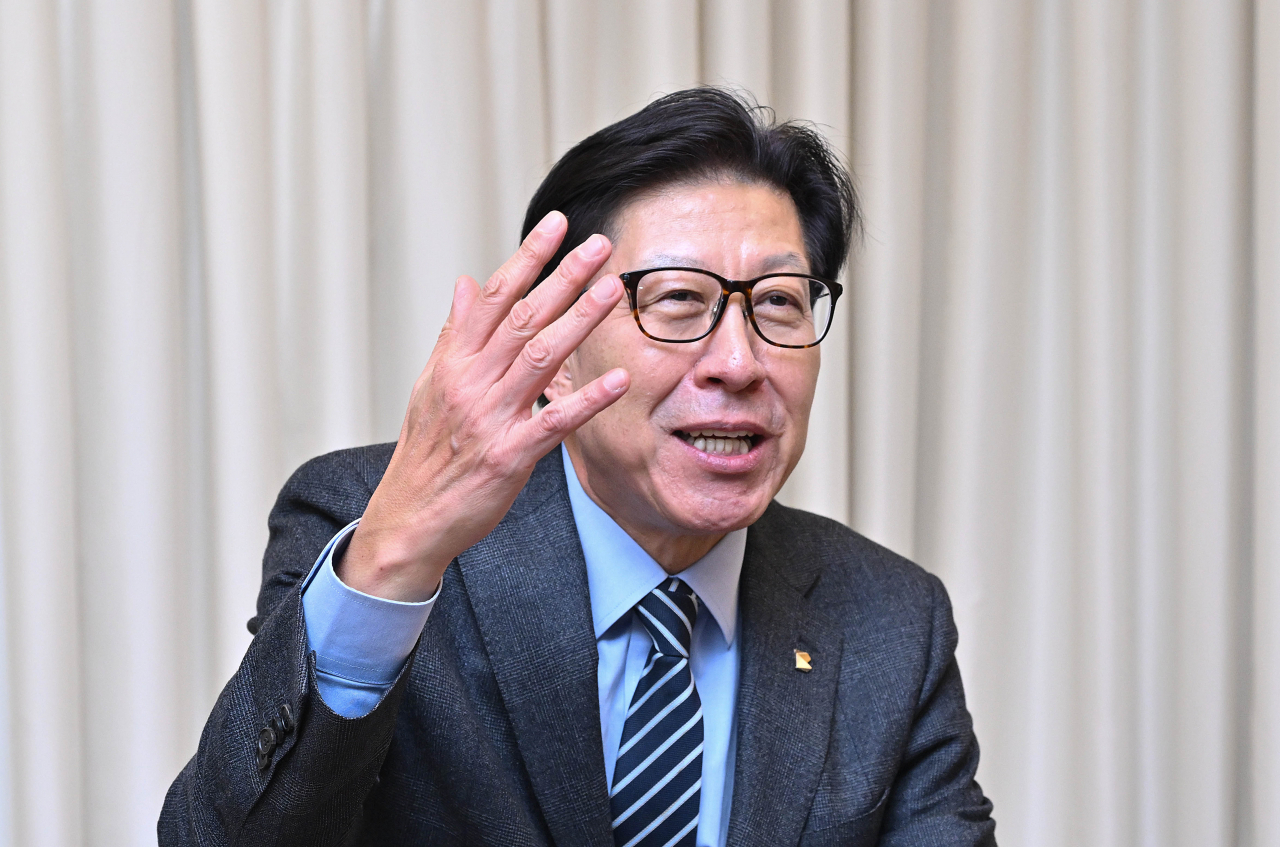Industrials
[Herald Interview] Busan mayor envisions city as Korea’s southern hub for balanced growth
 |
Busan Mayor Park Heong-joon speaks with The Korea Herald on the sidelines of the Korea-Mongolia Future Strategy Forum held in Busan on Friday. (Im Se-jun/The Korea Herald) |
Busan Mayor Park Heong-joon has called for a shift in South Korea’s development model, warning that the overconcentration of resources in the Seoul metropolitan area has created a national crisis. “The imbalance caused by unipolarity in the Seoul area is deepening South Korea’s critical challenges -- declining growth potential, low birth rates and widening inequality,” Park said in an interview with The Korea Herald in Busan last Friday.
“We must move toward balanced development by fostering multiple innovation hubs. Busan is perfectly positioned to be one of those key growth engines,” he emphasized.
Positioned as a logistics hub for Northeast Asia, Busan boasts a world-class port -- the second largest for transshipment globally -- and an indispensable geopolitical location comparable to Singapore, Hong Kong and Dubai. “If we combine Busan’s strategic location with strong government support and improved infrastructure, it can transform into a global port city that anchors Korea’s next phase of development,” Park said.
Park outlined his vision for a “dual-axis” national development model, where Busan serves as the southern growth center complementing Seoul. “This approach will not only resolve overconcentration but also help Korea achieve sustainable and inclusive growth,” he said.
Under Park’s leadership, Busan has made significant strides toward becoming a global hub city. The city secured early approval for Gadeokdo New Airport, which Park described as a “game-changer for Korea’s sustainable development.” Busan has also attracted record-breaking investments of 8.4 trillion won (approximately $6 billion) over the past two years, creating more than 12,700 jobs. Key projects include logistics giants like Coupang and Lotte Shopping, alongside companies in emerging industries such as digital technology and green energy.
“We’re fostering 10,000 digital talents and have elevated the city’s global standing,” Park noted, highlighting that Busan’s ranking in the Global Smart Centers Index rose from 62nd in 2021 to 14th in 2024. Similarly, Busan has achieved its best-ever performance in the Global Financial Centers Index, climbing to 25th globally.
These achievements have also translated into improved quality of life. “Busan ranks first in Korea for happiness among youth and children, making it a city people aspire to live in,” Park said.
Park envisions Busan evolving into a dual logistics and financial powerhouse. He highlighted the ongoing construction of a “Tri-Port” system -- integrating sea, air and rail transportation -- to enhance Busan’s competitiveness as an international logistics hub. This includes infrastructure expansion ahead of Gadeokdo New Airport’s opening.
On the financial front, Busan has leveraged its maritime and shipbuilding heritage to become a designated maritime financial center since 2009. Recent efforts focus on fostering digital finance, including the launch of Korea’s first blockchain-based digital asset exchange in October 2024. Park also emphasized plans for the completion of the third phase of the Busan International Finance Center by January 2025, which will further cement the city’s role as a global financial hub.
“Unlike Hong Kong, Singapore and other cities that serve as intermediary financial centers, Busan has a strong foundation in real industries. We are creating a financial city with substance, not just in name,” Park said.
By Moon Joon-hyun (mjh@heraldcorp.com)








